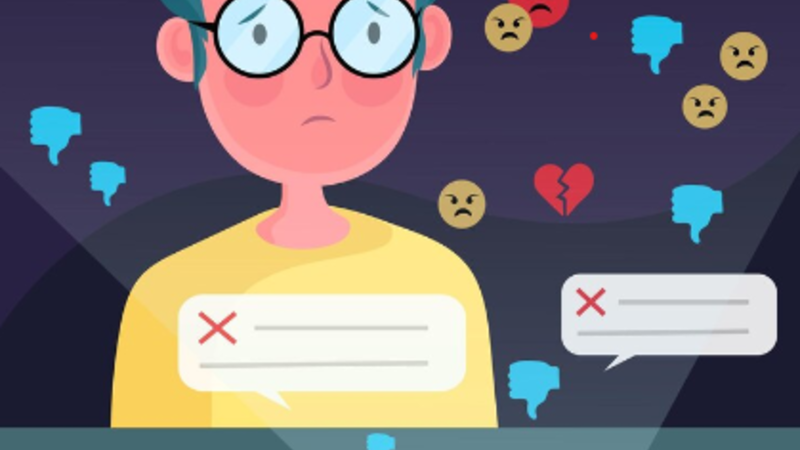Negative = Social Media – Understanding the Impact on Our Lives

In today’s digital age, social media has become an integral part of our lives. However, there is a growing concern over its negative impact. The term “negative = social media” encapsulates this worry, highlighting the darker aspects of our online interactions. This article delves into how social media affects our mental health, relationships, and overall well-being, using the keyword “negative = social media” to frame our discussion.
The Rise of Social Media: A Double-Edged Sword
Social media platforms like Facebook, Instagram, and Twitter have transformed how we communicate. On the one hand, they offer a way to stay connected with friends and family, share experiences, and even promote businesses. However, the rise of social media has also brought to light significant issues, which we summarize under the concept of “negative = social media.”
Negative = Social Media and Mental Health
One of the most discussed aspects of “negative = social media” is its impact on mental health. Studies have shown that excessive use of social media can lead to anxiety, depression, and feelings of loneliness. This is particularly true for teenagers and young adults who spend a significant amount of time online.
For instance, platforms like Instagram often present a distorted view of reality, where users only share their best moments. This creates unrealistic expectations and can lead to feelings of inadequacy and low self-esteem. The phenomenon of “negative = social media” is evident here, as these platforms, while connecting people, also contribute to a cycle of negative emotions.
How Social Media Affects Relationships
Another critical area where “negative = social media” comes into play is in our relationships. While these platforms can help maintain long-distance connections, they can also create misunderstandings and conflicts.
For example, miscommunication on social media is common. A simple message can be misinterpreted, leading to arguments. Furthermore, the public nature of social media can strain relationships. Personal matters that are aired publicly can cause embarrassment or hurt feelings, contributing to the negative effects of social media.
The Influence of Social Media on Self-Perception
“Negative = social media” also impacts how we perceive ourselves. Social media platforms encourage users to compare themselves to others, often leading to negative self-perception. This comparison culture can be detrimental, especially when people start measuring their worth based on likes, shares, or followers.
Moreover, social media influencers often promote unrealistic beauty standards. This can lead to body image issues, particularly among young women. The pressure to look perfect online can result in unhealthy behaviors like excessive dieting or even cosmetic surgery.
Frequently Asked Questions About Negative = Social Media
1. What does “negative = social media” mean?
The term “negative = social media” refers to the harmful effects and negative aspects of social media usage. This includes its impact on mental health, relationships, self-perception, and overall well-being.
2. How can social media affect mental health?
Excessive use of social media can lead to anxiety, depression, and feelings of loneliness. The constant comparison to others and the pressure to present a perfect life online are significant contributors to these issues.
3. Can social media negatively impact relationships?
Yes, social media can strain relationships due to miscommunication, public airing of personal issues, and the pressure to maintain a certain image online.
4. How can I reduce the negative impact of social media?
To reduce the negative impact, it’s essential to limit time spent on social media, be mindful of the content consumed, and engage in offline activities that promote well-being.
5. Are there any positive aspects of social media?
While this article focuses on the negative aspects, social media can also have positive effects, such as connecting with others, sharing knowledge, and promoting causes.
Addressing the Negative = Social Media
So, how can we address the issue of “negative = social media”? Awareness is the first step. Understanding the potential harm that social media can cause is crucial. Once we’re aware, we can take steps to mitigate these effects.
One effective way to counteract the negative impact is by setting boundaries. Limiting the time spent on social media can reduce exposure to harmful content. It’s also helpful to curate your social media feed carefully. Follow accounts that promote positivity and well-being, and unfollow those that contribute to negative feelings.
Engaging in offline activities is another way to counteract the effects of “negative = social media.” Spending time with loved ones, pursuing hobbies, and participating in physical activities can help improve mental health and reduce reliance on social media.
The Role of Social Media Platforms
Social media companies also have a role to play in addressing “negative = social media.” They need to take responsibility for the content on their platforms and ensure that harmful material is minimized. This can include implementing stricter content moderation policies, promoting mental health resources, and providing tools for users to manage their social media usage.
Moreover, platforms can introduce features that encourage positive interactions. For example, Instagram has experimented with hiding likes to reduce the pressure on users. Such initiatives can help create a healthier online environment.
Conclusion
In conclusion, while social media offers many benefits, it’s crucial to recognize and address its negative aspects, summarized under the term “negative = social media.” From mental health issues to relationship strains, the impact of social media is far-reaching. By understanding these effects and taking proactive steps, both individuals and social media companies can work towards creating a more positive online experience.